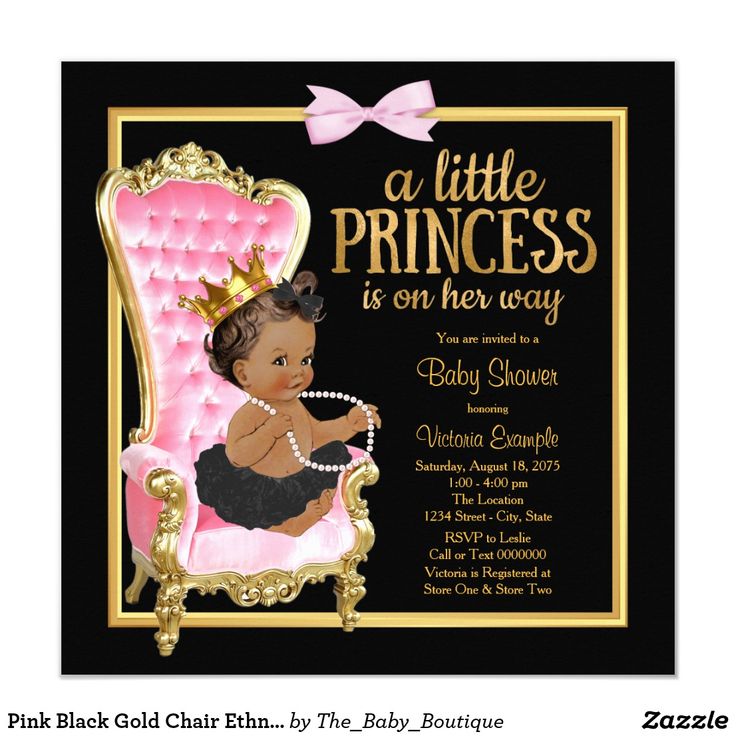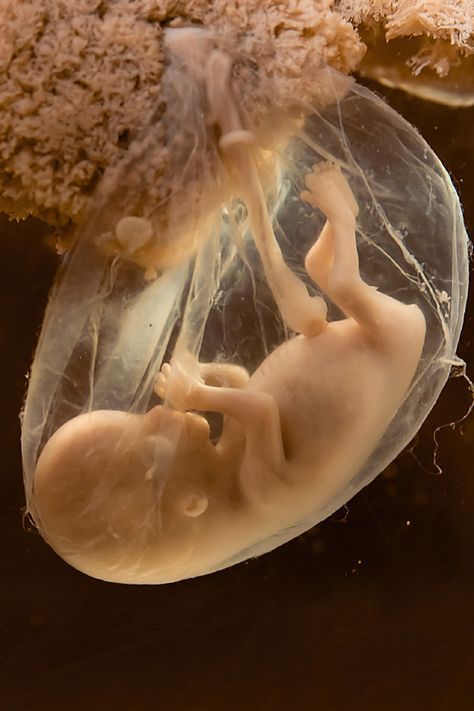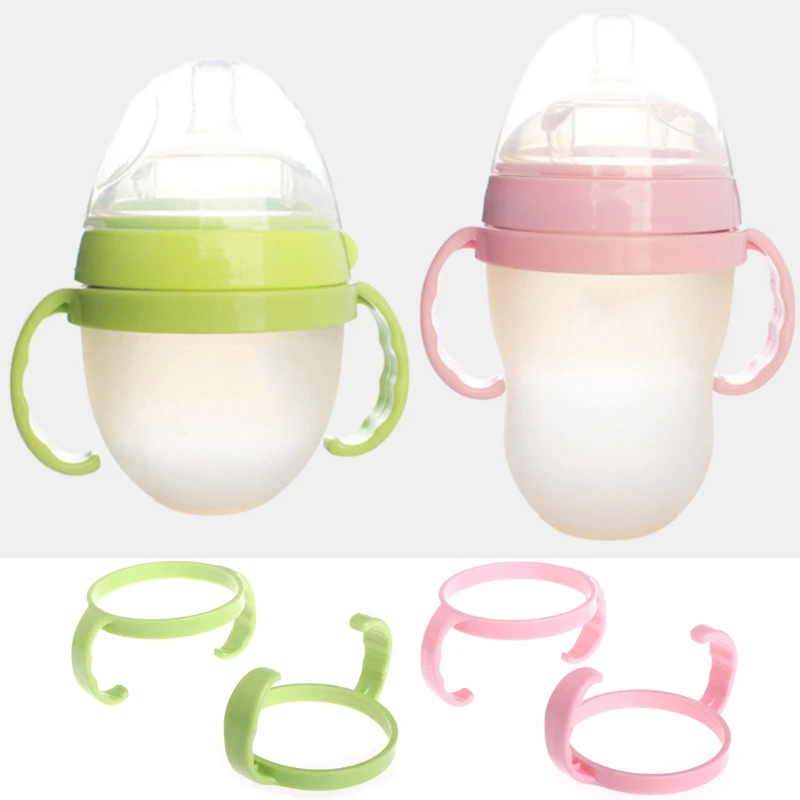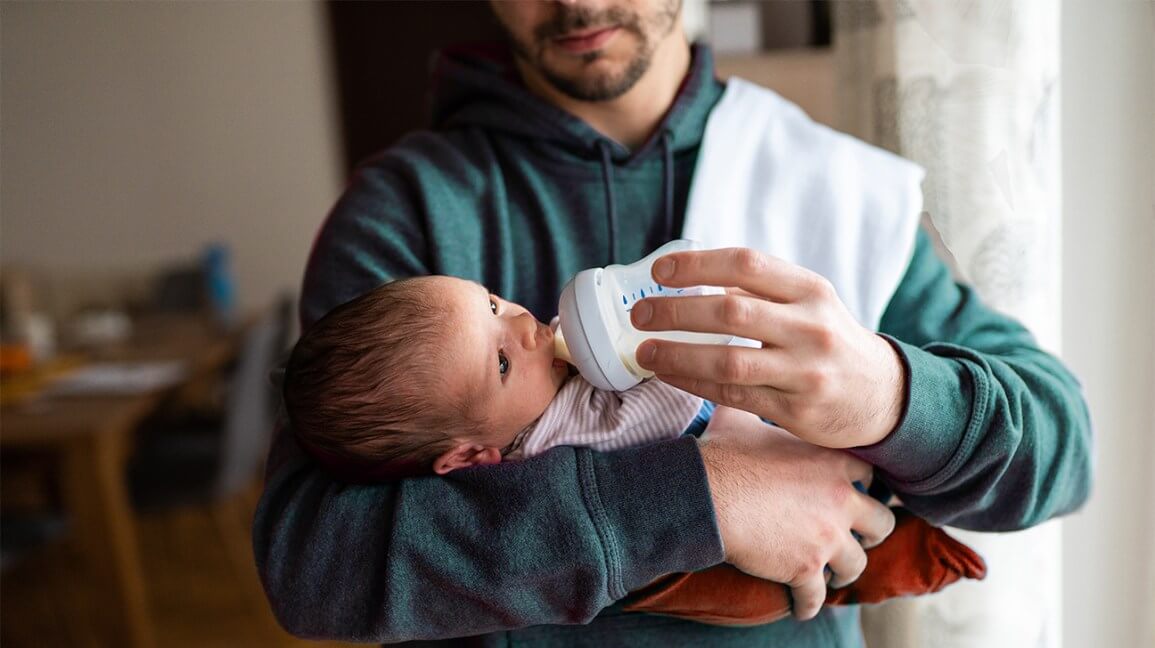Baby eating less at night feeding
Waking up in the middle of the night to feed your baby?
Getting up to feed your baby at night goes hand in hand with parenting, and as tiring as it can be, many moms and dads enjoy the opportunity those late night feeds provide for extra cuddling and bonding with their baby. Eventually though, even the most dedicated parents look forward to getting longer stretches of sleep for their baby (and for themselves!)
If you’re lucky, your baby will naturally start to sleep for longer and longer stretches at night without waking up to eat. But some babies will continue to wake up often – not because they still need the nighttime calories – but because they’re used to receiving them. These wake ups may also be driven by an “eat to sleep” association, which means that baby requires the bottle or the breast to fall asleep throughout the night. If your baby is eating at night out of habit, not necessity, you may want to consider gently reducing or eliminating those extra feeds.
NOTE: The decision to reduce night time feedings should be based on realistic expectations about your baby’s ability to go for longer stretches and how you feel about night time feeding in general. If feeding your baby is working well, don’t feel pressured to eliminate feeds just because someone else is telling you that you should. You’ll know when the time is right, and when it is you can implement the following strategy.
DETERMINE HOW MANY NIGHTTIME FEEDS YOUR BABY REALLY NEEDS
Although every baby is different, the breakdown below can give you an idea of what typical feeding patterns look like for healthy babies during the first year. These numbers are just averages – if your baby is eating less than the average amount at night but is healthy and growing well, don’t worry! Also, keep in mind that if your baby was born pre-maturely, isn’t growing well, or has an underlying medical condition they may need more than the average number of feeds.
0 to 3 months of age – on demand
3 to 4 months of age – 3 – 4 feeds per night
4 to 6 months of age – 1 – 2 feeds per night
6 to 9 months of age – 1 feed or no feeds per night
9 to 12 months of age – parent’s choice
Always check with your pediatrician before you decide to make any changes to your child’s current feeding patterns, and if you’re breastfeeding, speak with a lactation professional if you have any concerns about managing your supply.
DETERMINE HOW MUCH YOUR BABY IS ACTUALLY EATING AT NIGHT
Take a look at your babies night time feeding patterns. True feeds involve substantial caloric intake. If your baby is taking two or more ounces from the bottle per feed or actively nursing for more than four or five minutes per feed you can consider this to be a true feed. If, on the other hand, your baby only nurses for a few minutes or takes less than two ounces from the bottle, they aren’t receiving substantial calories and you can consider those to be comfort or sleep associated feeds.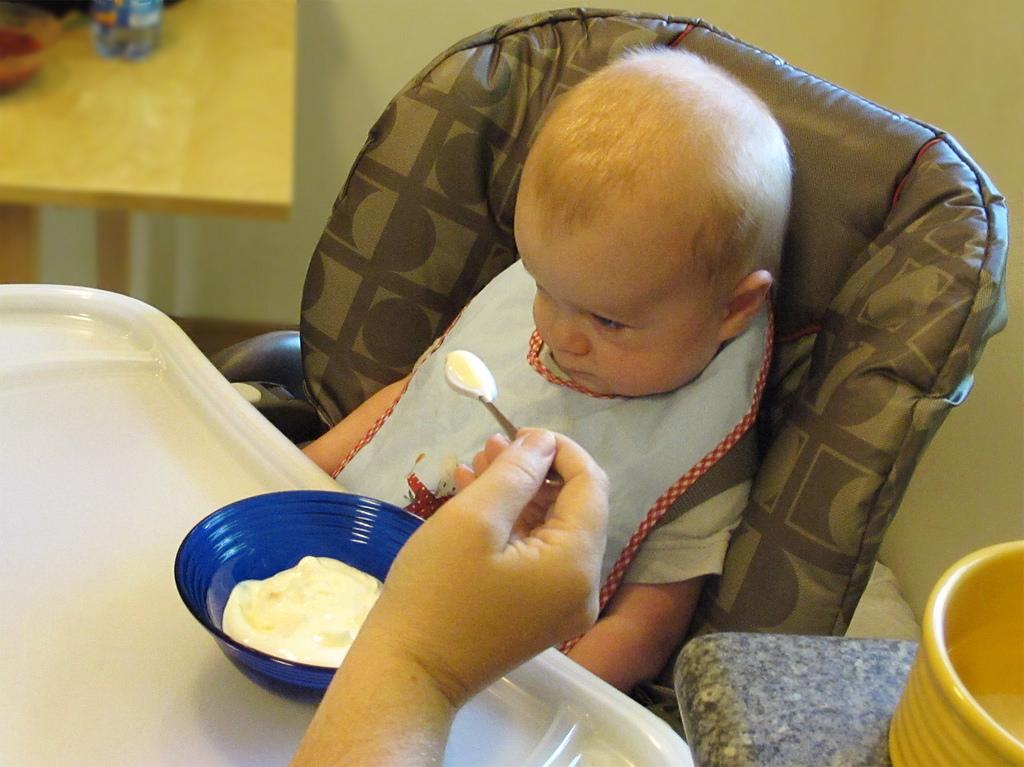 It’s important also to consider that even if your baby is only “snacking” all night long, all of those little one or two ounce feeds can add up to quite a lot of calories! If this is the case with your baby, you may want to start by choosing one or two times during the night that you’ll offer the bottle or the breast and then reduce from there once your baby is sleeping well between those feeds.
It’s important also to consider that even if your baby is only “snacking” all night long, all of those little one or two ounce feeds can add up to quite a lot of calories! If this is the case with your baby, you may want to start by choosing one or two times during the night that you’ll offer the bottle or the breast and then reduce from there once your baby is sleeping well between those feeds.
DECIDE WHICH FEED TO REDUCE FIRST
Because babies takes their deepest sleep during the first part of the night, it can be helpful to start reducing your baby’s earliest feed first, simply because they may fall back to sleep more easily at that hour. For example, if your baby is feeding at 11:00 pm, 2:00 am and 5:00 am, the 11:00 pm feed would be a sensible place to start.
If, however, the 11 pm feed is easy for you (let’s say you don’t go to bed until midnight) and it’s challenging for you to get up at 2:00 am, you may want to start reducing the 2:00 am feeding first. Either approach is viable, and either way both you and your baby will eventually be getting longer stretches of sleep. Just keep in mind that it may take a bit more work for your baby to fall back to sleep during the early morning hours because they’re in lighter stages of sleep at that time.
Either approach is viable, and either way both you and your baby will eventually be getting longer stretches of sleep. Just keep in mind that it may take a bit more work for your baby to fall back to sleep during the early morning hours because they’re in lighter stages of sleep at that time.
NOTE: Expect that your feeding schedule may shift or change a bit as your baby drops a feed – for example, if you drop the 11:00 pm feed your baby may wake up at 1:00 am instead of 2:00 am. for their next meal. The same is true if you eliminate the 2:00 am feed – your baby may begin to wake at 4:00 am instead of 5:00 am. Be sure to let your baby eat as much as they want during the feeds that you’re planning to keep. A full tummy will help your baby to stay asleep until the next scheduled feed.
FOCUS ON OFFERING PLENTY OF DAYTIME CALORIES
When reducing night feeds it’s more important be sure that your baby is getting enough calories during the day.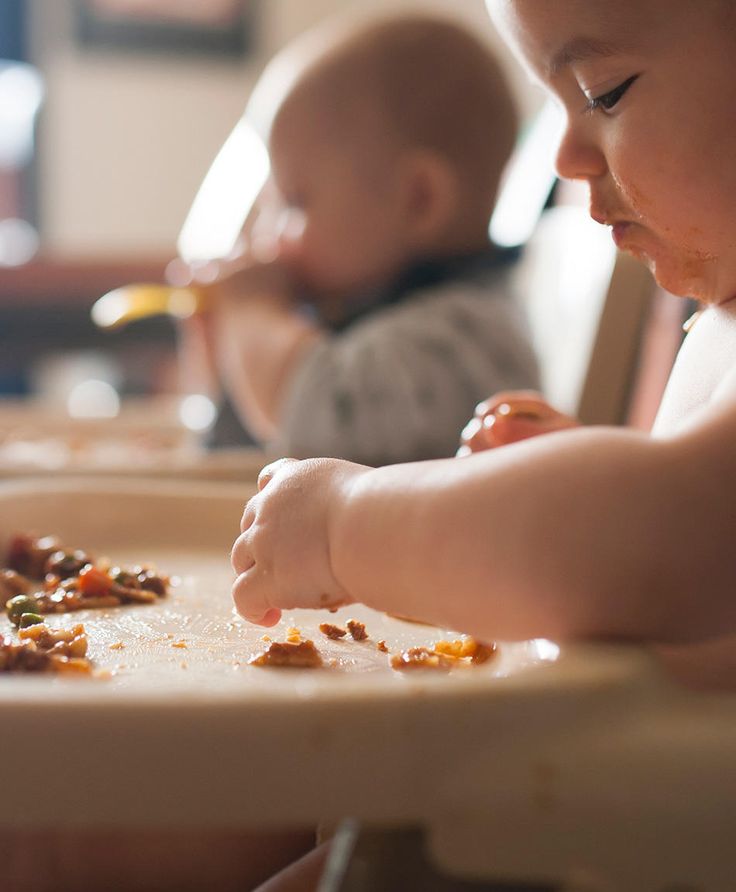 Check with your pediatrician about how much your baby should be eating during the day, and be sure that they are good, nutritive feeds. If your baby seems hungrier during the day when you start shifting calories you can offer another feed or offer more bottle or breast time throughout the day. Remember that the goal is sufficient caloric intake during the day so that your baby doesn’t need to receive those calories at night.
Check with your pediatrician about how much your baby should be eating during the day, and be sure that they are good, nutritive feeds. If your baby seems hungrier during the day when you start shifting calories you can offer another feed or offer more bottle or breast time throughout the day. Remember that the goal is sufficient caloric intake during the day so that your baby doesn’t need to receive those calories at night.
REDUCE GRADUALLY
Stopping feeds cold turkey is never a good idea, even for toddlers and pre-schoolers who are used to eating at night – it’s the equivalent of skipping a meal and almost always results in a miserable night for everyone! Reducing gently will allow your baby’s body to adjust gradually, over time. This is also the best approach for breast feeding moms because it allows supply to adjust gradually, and reduces the risk of engorgement.
For bottle fed babies:
When your baby wakes, feed them as you always do, but offer a half ounce or full ounce less each night or every other night until they’re only taking two ounces at that feeding. Depending on how many ounces your baby has been taking at that feed, you can usually accomplish this in a week or so. If your baby notices the reduction and starts to fuss you have a choice – you can either use other soothing techniques like rocking to lull them back to sleep or use a sleep coaching strategy that allows them to put themselves back. Remember that some babies are ready to drop feeds before they’re ready for sleep training. Get the green light from your pediatrician before you attempt to sleep train your baby and remember that learning sleep skills starts with bedtime – if your child doesn’t know how to put themselves to sleep when you put them down at bedtime, you can’t expect them to be able do it in the middle of the night.
Depending on how many ounces your baby has been taking at that feed, you can usually accomplish this in a week or so. If your baby notices the reduction and starts to fuss you have a choice – you can either use other soothing techniques like rocking to lull them back to sleep or use a sleep coaching strategy that allows them to put themselves back. Remember that some babies are ready to drop feeds before they’re ready for sleep training. Get the green light from your pediatrician before you attempt to sleep train your baby and remember that learning sleep skills starts with bedtime – if your child doesn’t know how to put themselves to sleep when you put them down at bedtime, you can’t expect them to be able do it in the middle of the night.
For breast fed babies:
When your baby wakes, feed your baby as you always do, but reduce the number of minutes you nurse every night or every other night. Depending on how long you usually nurse, you can reduce between 30 seconds and two minutes each night until you’re down to three or four minutes of nursing for that feed. Again, if your baby notices the reduction and fusses you can use a sleep training strategy or other soothing techniques like rocking to help resettle back to sleep.
Again, if your baby notices the reduction and fusses you can use a sleep training strategy or other soothing techniques like rocking to help resettle back to sleep.
Once the first feed has been eliminated (and if your baby is ready) you can start working on the next feed, and then the next feed, etc.
Sweet dreams,
Mistakes To Avoid For Baby Night Feedings
When we become first time parents (or even second or third time) to a newborn, we are so worried about so many different things such as baby night feedings, is the baby eating enough, pooping and peeing enough, are they sleeping too much during the day or not enough?
And are you recording all of it to share with the doctor during her first month well visit?
It can all get to be a bit overwhelming.
It boggles the mind that a person so teeny tiny can run us ragged and make us question everything. Well, as my little gift to all of you new parents out there (whether it’s your first rodeo or not), I’d like to impart some wisdom that I have learned first through being a new parent myself (twice) and also through all of my training to become a child sleep consultant. Mistakes to avoid for baby night feedings.
Mistakes to avoid for baby night feedings.
Mistake #1: Turning on the light when it is supposed to be night.
I too made this mistake when I was a first time mommy. When my newborn awoke in the night to feed, I’d go into her room and turn on a light or two so I could properly see what I was doing while changing her diaper and making sure she latched on properly. This is probably one of the worst things I could have done! While I was in the process of trying to fix her day/night confusion, I was sabotaging my efforts by turning on the lights. This sends the wrong signal to your little baby. The signal that WAKE UP! Let’s interact! Definitely not conducive to a healthy sleep environment.
While I recommend that parents make the daytime feedings as bright as possible, during the night I suggest that you accomplish the feed and everything that comes along with it in as much darkness as you possibly can. Why? Because we want the baby to learn that night time is boring and should be a time to sleep (because…well…there’s nothing better to do). This means that if you can become a pro at changing the diaper in the dark…YOU ROCK! Although those soiled diapers can cause a bit of a harder time to sort out if you can’t see what you are dealing with. If you do need at least some light, make sure it is as low as possible and turn it off as soon as you no longer need it. This will help keep your baby’s body in the zone for sleep and that much quicker to return to his or her crib or bassinet once the change and feed is complete.
This means that if you can become a pro at changing the diaper in the dark…YOU ROCK! Although those soiled diapers can cause a bit of a harder time to sort out if you can’t see what you are dealing with. If you do need at least some light, make sure it is as low as possible and turn it off as soon as you no longer need it. This will help keep your baby’s body in the zone for sleep and that much quicker to return to his or her crib or bassinet once the change and feed is complete.
Mistake #2: Late night TV – Catching up on all the shows on your DVR.
Sure, sitting in the dark while your baby takes her time feeding can be pretty tiring and boring. I know I thought turning on the TV would help keep me awake through the feed and also keep me entertained. Boy, could I have been more wrong. It’s probably one of the worst things I could have done for my daughter’s sleep habits at night and my own. Television equals entertainment. It also equals stimulation via the picture and sound. Televisions emit blue light which is stimulating to the human brain. So while I was trying to keep myself entertained with the late, late show, I was also waking my brain (as well as my daughter’s) making it that much harder for me to go back to sleep once my babe was tucked back into her crib. The sound was also a problem because it was causing a distraction for my daughter. She should have been solely focused on eating. Instead she was torn between her hunger and all the action coming from the TV. Some of those early night feeds took forever.
Televisions emit blue light which is stimulating to the human brain. So while I was trying to keep myself entertained with the late, late show, I was also waking my brain (as well as my daughter’s) making it that much harder for me to go back to sleep once my babe was tucked back into her crib. The sound was also a problem because it was causing a distraction for my daughter. She should have been solely focused on eating. Instead she was torn between her hunger and all the action coming from the TV. Some of those early night feeds took forever.
Mistake #3: Cuddle them close, but don’t look them in the eye.
It’s the middle of the night. You’re exhausted and all you want to do is sleep. That’s a reasonable request from a sleep deprived parent. To help get you tucked back into bed sooner, I recommend that when you are feeding your little one via nursing or bottle, do not make eye contact or talk to your newborn. By doing so you again are stimulating the baby and rousing her more out of sleep. While we don’t want to make a feeding a sleep prop (Heavens no!) we also want the little mister or miss to get down to business and eat so they can go right back to sleep once finished. If you are not looking and smiling at or talking to the baby, he or she will again find the night time pretty boring and realize there is no pajama party going on in the wee hours of the morning.
While we don’t want to make a feeding a sleep prop (Heavens no!) we also want the little mister or miss to get down to business and eat so they can go right back to sleep once finished. If you are not looking and smiling at or talking to the baby, he or she will again find the night time pretty boring and realize there is no pajama party going on in the wee hours of the morning.
Mistake #4: If you are currently making the mistakes to avoid when feeding your newborn at night…
Relax! You can fix it! The great thing about newborns is that they haven’t been around too long to form deep rooted habits. Tonight, follow the tips above and begin teaching your precious little bundle of joy that night time is for sleeping and daytime is for interacting and play (as well as many, many naps).
If you are finding that making the transition to becoming a new parent is a bit harder than you thought it would be. I want to tell you that you are not alone. I am available and more than ready to help you guide your baby on a path to healthy sleep habits. I welcome you to contact me today 267-382-0826 and let me know that you would like to learn more about my Newborn Sleep Consultation. Be sure to mention this blog post for a special discount.
I welcome you to contact me today 267-382-0826 and let me know that you would like to learn more about my Newborn Sleep Consultation. Be sure to mention this blog post for a special discount.
(Visited 48,026 time, 191 visit today)
How to wean a child from night feeding, wean a child to eat at night
Contents
Should the child be fed at night How many nightly feedings does the baby need
- For breastfed infants, combined breastfeeding and infants with reflux
How to know if your baby is ready to give up nighttime meals0003
Should I feed my baby at night
Feeding a newborn at night is something that is so difficult for many new parents: it is difficult to maintain your own health, feel good and at the same time take care of your baby if you are chronically sleep deprived. But why can't a baby go without food at night?
In the first months, the baby does not have a clear regime, he still weakly distinguishes between day and night: during prenatal development, the baby is used to getting everything he needs from his mother at any time. And most importantly - at the beginning of life, the child grows very quickly and requires a lot of nutrients, while having a small stomach and a still fragile digestive system. For these reasons, the baby cannot go without food for a long time and requires food approximately every 2-3 hours, and pediatricians, in turn, insist on the need for nightly breastfeeding of a newborn.
And most importantly - at the beginning of life, the child grows very quickly and requires a lot of nutrients, while having a small stomach and a still fragile digestive system. For these reasons, the baby cannot go without food for a long time and requires food approximately every 2-3 hours, and pediatricians, in turn, insist on the need for nightly breastfeeding of a newborn.
Important!
Sleep and eating habits, as well as the need for them, are individual for each child. Therefore, if it seems to you that the baby eats little and rarely, or vice versa - too often, consult with the doctor you are seeing.
In addition, night feedings, although they interfere with sleep, are useful not only for the child, but also for the mother. They help to properly establish lactation, because it is at night that the hormone prolactin is produced, which is responsible for the amount of breast milk.
Read also Establishing breastfeeding is one of the priority tasks in the first days after childbirth
Tip
With proper organization of night feedings, the baby eats half asleep and quickly falls asleep further. To do this, start a night light in the room and be ready to feed as soon as the baby wakes up. Sleep in comfortable nursing clothing if you are breastfeeding.
To do this, start a night light in the room and be ready to feed as soon as the baby wakes up. Sleep in comfortable nursing clothing if you are breastfeeding.
How many night feeds does a baby need
The smaller the child, the more often he needs to be fed. But over time, the digestive tract gets stronger, and the baby can eat more and endure longer breaks between meals. Below is an approximate number of night feedings, depending on the age of the baby:
1. For breastfeeding, combination breastfeeding, and infants with reflux:
Age
Number of nightly feedings
0-3 months
Breastfeeding on demand approximately every 2-3 hours
3-3 4 months
2-3 times on demand or every 3-6 hours
5-6 months
1-2 feedings
7-9 months
1, possibly 2 times
10-12 months
sometimes 1 feeding
12+ months
usually no night feedings
3-4 months
1-2 times a night or every 3-6 hours on demand
5-6 months
possible, 1 feeding
7+ months
usually no night feedings
See also: Healthy eating: how much should a child eat before the age of one?
Important!
During growth spurts, your baby should be fed as needed.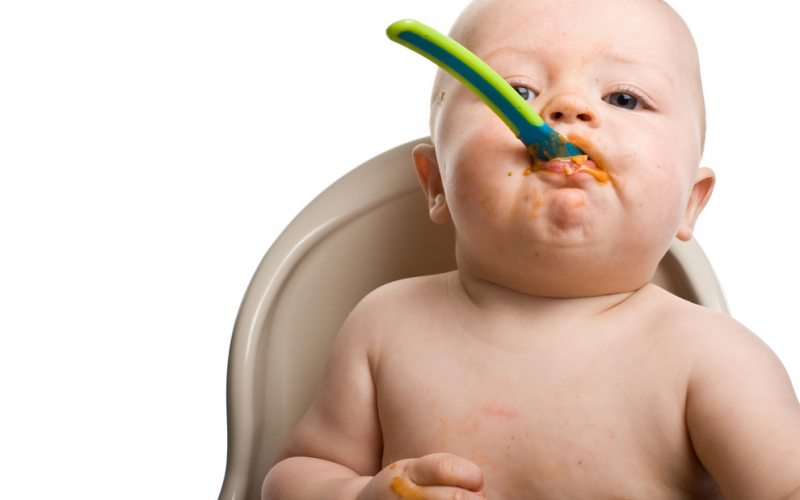 Such bursts occur at about 5, 8, 14, 19, 26, 37 and 46 weeks of age and last about 7 days.
Such bursts occur at about 5, 8, 14, 19, 26, 37 and 46 weeks of age and last about 7 days.
How do you know if your baby is ready to give up nighttime meals? After this period, the need for nightly meals depends on the pace of development, individual needs and the health of the child. If the baby was born prematurely or is not gaining weight well, experts recommend waking him up 3.5-4 hours after the previous feeding and offering the breast.
Advice
If you're not sure if your baby is ready to stop feeding at night, talk to your doctor. The specialist will help you understand and make the right decision based on the physical indicators of your child.
If the baby is healthy and has a good weight, somewhere between 4 and 6 months old, he will begin to get enough calories during the day so that he does not need to feed at night. In breastfed children, this process may be a little slower - up to 6–10 months [2].
It is also important to take into account that the refusal of nighttime "snacking" occurs gradually: there are very few cases when a child stops eating at night and immediately starts sleeping 5-6 hours in a row.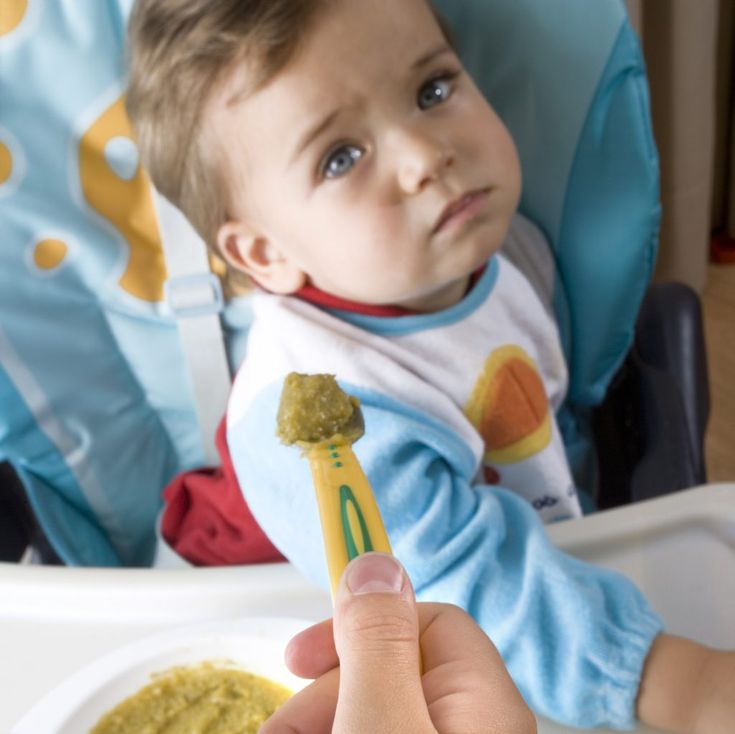 Usually, babies who are used to eating several times a night wake up out of habit, and it will take time to change this routine. First, the baby will ask for food half an hour later than usual, then an hour, a little later - two, and so on. Step by step, over several weeks, night sleep reaches 6-7 hours in a row. This joyful moment can come at 4 months or closer to 12 months: all babies are unique, and it's not scary or unusual for an infant to sleep much longer without food, while an older child keeps waking up to eat.
Usually, babies who are used to eating several times a night wake up out of habit, and it will take time to change this routine. First, the baby will ask for food half an hour later than usual, then an hour, a little later - two, and so on. Step by step, over several weeks, night sleep reaches 6-7 hours in a row. This joyful moment can come at 4 months or closer to 12 months: all babies are unique, and it's not scary or unusual for an infant to sleep much longer without food, while an older child keeps waking up to eat.
Advice
Dentists recommend avoiding nighttime feedings for children older than one year, as food leftovers in the mouth can damage milk teeth. This risk is minimal when breastfeeding.
Also, remember that a child has many other important needs. Perhaps he wakes up and calls you, not so much for food, but for comfort and closeness. What could be more reassuring and safer than the caring hands of parents who feed and cradle?
Read also: Stages of development of the child's psyche up to a year. Conditions for adequate development. The role of mother
Conditions for adequate development. The role of mother
How to wean a child from night feeding: expert advice
Many parents are interested in how to properly wean a baby from eating at night so that it does not become a lot of stress for him. Especially if the baby stubbornly refuses to give up night feeding.
- Start the weaning process slowly and gradually. Slowly reduce your nighttime breastfeeding time or give your baby less milk (formula if formula-fed) from a sippy cup. Try to extend the intervals between feedings.
Important!
Under no circumstances should the issue of night feedings be turned into a battlefield. The “cry - stop - wean” method loosens the baby’s nervous system and can provoke severe stress.
- Make sure your child eats well during the day. Babies become more active as they get older, and if they get carried away playing or walking, they may skip meals or not eat enough and then try to make up for it at night.
 Therefore, take scheduled breaks during the day for "silent feeding" in a place where nothing will distract the crumbs from eating.
Therefore, take scheduled breaks during the day for "silent feeding" in a place where nothing will distract the crumbs from eating.
Advice
If you're not sure your child is eating enough, check their height by weighing them at the doctor's office.
- Try feeding your baby before bed. If a child goes to bed with a full tummy, they are less likely to wake up hungry in the middle of the night.
- Ask dad to wake up at night. If an awakened baby hears your smell or the aroma of breast milk, this can provoke his appetite, even if the baby did not wake up because of hunger. If you sleep in the same room, it's best to move the crib to dad's side.
- Phase out feedings one at a time. When the baby wakes up to eat at night, go to him and reassure him, gently but firmly explain that now is the time to sleep, not eat. At the same time, pat and stroke the child on the back or tummy, but do not pick him up. Even if the baby does not yet understand your words, he gradually catches the meaning, and your presence and attention will be soothing to him.

See also: How to calm the baby?
- Try giving your baby water to drink. Babies may wake up at night not from hunger, but from thirst, especially in hot weather or in a room with dry air. If after half an hour the baby wakes up again, feed him, and if not, then he is full and satisfied.
- If the baby has been crying inconsolably after stopping night feedings for several days in a row, stop the attempt and return to your normal routine for a while. Let the baby calm down and start weaning him again in a week or two.
- Do not stop night feedings during the transition period. For example, when you are going to return to work or go on vacation without a baby. If your baby sees less of you during the day, try to hug and interact with him more in your free time. It is necessary that he clearly feels your connection and care, then the baby is less likely to seek solace in the middle of the night.
- If the baby continues to require nighttime feedings, try to create conditions in which he does not want to feed himself.
 A great opportunity appears at 8-9months, when the baby is already confidently eating complementary foods. To do this, move the usual bowl of porridge to the evening: this way the child stays full longer and may not ask for an extra portion of food at night.
A great opportunity appears at 8-9months, when the baby is already confidently eating complementary foods. To do this, move the usual bowl of porridge to the evening: this way the child stays full longer and may not ask for an extra portion of food at night.
See also: Introducing complementary foods to a baby
Advice
Do not give your baby new complementary foods at night, introduce them only in the morning. Otherwise, you run the risk of observing the reaction to unfamiliar complementary foods instead of sleep. Also, do not give your child meat at night, it is hard to digest, can cause discomfort in the stomach and restless sleep.
Also keep in mind that the decision to not feed at night depends in part on how it affects you. If you enjoy breastfeeding or drinking from a cup at night, there is no reason to stop: at a certain point, the baby will stop asking for food on its own. But if you feel that lack of sleep prevents you from living and enjoying motherhood, and the baby is already physically ready for change, it's time to try switching to a daily routine. In any case, you should do what is best for you and your family.
In any case, you should do what is best for you and your family.
FAQ
1. How often should a newborn be fed?
A newborn needs to be fed every 2-3 hours, i.e. 10-12 times a day. Further, the intervals between feedings gradually increase to 3-6 hours, and the child gets the opportunity to sleep all night.
2. How much should a child eat per day?
The daily "portion" of food for the baby depends on his age and weight. From 10 days to 1.5 months, the baby needs such an amount of food, the weight of which is approximately 1/5 of the child's body weight. From 1.5 to 4 months - 1/6 of the baby's weight, from 4 to 6 months - 1/7, from 6 to 8 months - 1/8, from 8 to 12 months - 1/9.
3. What happens if you don't stop night feedings?
Most likely, the child will eventually refuse them himself. But some pediatricians, notably Richard Ferber [1], warn that unnecessary nighttime feedings can cause sleep problems. Also, food leftovers after late “snacks” can provoke the development of caries in milk teeth.
Sources
- Baby sleep training: Night weaning. By Darienne Hosley Stewart | Medically reviewed by Lisa Dana, M.D.
- Night Feedings by Age – When Do You Try Night Weaning? By Nicole Johnson, Founder and Lead Sleep Consultant in Sleep Training.
Articles on the topic
We observe the diet
How to teach your baby to eat with pleasure?
Physical development of the child by months
Night feedings until what age - what time to wean the child from night feeding0003
6-9 months 9-18 months
Article author
BabySleep team
BabySleep team
Sleep consultants, doctors, psychologists, breastfeeding consultants
Everyone knows that frequent nighttime awakenings of a newborn need to be fed or need to be sedated , is a natural part of motherhood. How pleasant it is to hug a child in the silence of the night and attach it to your chest! But one day there comes a moment when the uninterrupted sleep of the baby and mother becomes more important than nightly breastfeeding.
Child crisis calendar
Night feeds: until what age?
Many parents are interested in night feedings: until what age should they be kept? When should a child be weaned from night feeding? In this article, we present the opinion of our American colleagues on breastfeeding. Their recommendations may need tweaking, but it's certainly an interesting take on the issue.
BabySleep considers it necessary to emphasize that reducing nighttime feedings at any age does not in any way mean a complete rejection of breastfeeding, unless the mother has such an intention. This is just a reduction in the number of attachments to the chest during a night's sleep. The mother can still continue breastfeeding even if the number of nightly feedings is reduced.
It is also important to remember that breastfeeding is not only a process of satiating the child, but also a time of physical and emotional closeness between mother and baby. In some situations, this factor is of paramount importance and it is not worth reducing the number of feedings.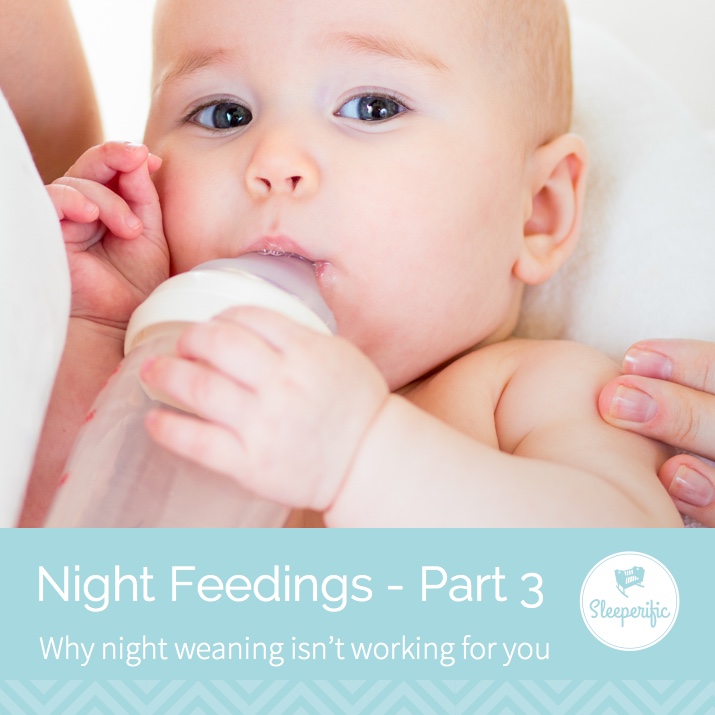
What do doctors say?
Many children continue to wake up for night feedings from one to several times a night, although, due to their age, they are already able to sleep for a long period of time without waking up. The reason is that they are used to getting calories at night. Very often, nighttime awakenings and the need to breastfeed in order to fall asleep again are caused by an association with falling asleep. This means that when you wake up at the end of your sleep cycle (every 40–90 minutes), the baby simply cannot fall asleep again without sucking, even if at that moment he is not hungry. Some children only need to take a few sips to calm down, and someone eats, consuming calories that the body does not need at that moment.
When the baby wakes up to satisfy his hunger, he actively sucks and swallows for at least 5 minutes or drinks more than 60 ml. milk from a bottle. If there is an association to fall asleep, or if the baby needs to breastfeed to calm down, the baby sucks out only a little milk. If the baby is really hungry at night, it is not recommended to drastically reduce the number of nightly feedings. If the child is hungry, he must be fed!
If the baby is really hungry at night, it is not recommended to drastically reduce the number of nightly feedings. If the child is hungry, he must be fed!
How many night feeds does a baby need?
Before starting to reduce the baby's night feedings, the mother should make sure that he is ready for this and that her expectations are realistic. If there are no problems with lactation, the baby is healthy, calm, eats well during the day and is gaining weight, you can simply use the table as a guide, which indicates the number of nightly feedings recommended by American baby sleep experts.
Talk to your doctor before starting to cut down on nightly breastfeeding. It is also important to consider the age of the child depending on the EDD (estimated date of birth). If the baby eats at night more often than indicated in the table, but sleeps well, and it suits you, there is no problem. If your baby is eating less often, but your pediatrician is happy with how he is growing and gaining weight, you are doing great too!
The recommendations in this article are for those mothers who are worried about the fragmented sleep of the child due to the fact that the baby often eats at night.
Until what age to continue night feeding?
Children's nutritional needs differ, but you can focus on the average data from the table:
When should a child be weaned from night feedings?
A child's readiness to reduce nighttime feedings can be tested by answering the following questions:
- Is your baby 6 months old or older and eating solid foods well?
- Was the baby born at term with a normal weight?
- Does the baby need night feedings, rather to calm down than to satisfy the feeling of hunger (applications are very short)?
- Feeding for a baby is an association for falling asleep, does he not know how to calm down and fall asleep himself during daytime and nighttime dreams, does he often wake up at night?
- Is co-sleeping a necessary measure for you because of the association for the baby to fall asleep (see paragraph 4)?
- Do all family members lack sleep and feel constantly tired (as a result of points 4 and 5)?
- Are night feedings erratic (time and number of awakenings vary each night)?
- Does your child eat more at night than during the day?
- In the past, has the baby been able to sleep for three or more days in a row for long periods of time without feeding, or with one feeding between 22:00 and 24:00 (not during illness, etc.
 )?
)? - Does the baby eat once a night - at 3-4 in the morning - and constantly refuses morning feeding?
If the majority of answers are yes, this shows the child's readiness to reduce the number of nightly attachments.
Reduced night feedings. Where to begin?
If you can't tell exactly what time and how long your child eats at night, watch him for 2-3 nights. When you see patterns in nightly breastfeeding, you can draw up a work plan and gradually wean the baby from breastfeeding.
- Start with feedings in the first hours of sleep, when the baby has not yet had time to get hungry.
- If nighttime breastfeeding is associated with falling asleep for your baby, separate breastfeeding from the process of falling asleep—feeding before bed to soothe and relax, and then falling asleep without suckling.
- Reduce the time your baby spends at the breast at night, or reduce the amount of milk in the bottle.



